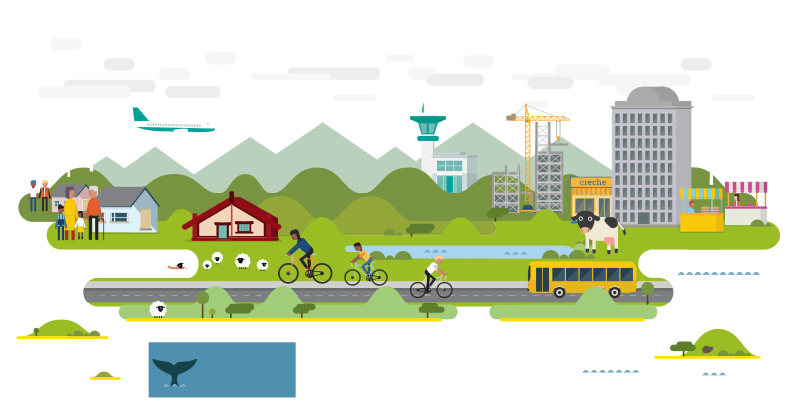Research Projects
CivicsNZ
Empowering citizens and fostering trust
CivicsNZ is a research project that aims to promote civics education in New Zealand, showcasing the machinery of government and empowering citizens through a shared understanding of our common rights and responsibilities.
The project aims to contribute to a discussion on the importance of good civics education in New Zealand. Participants in our youth workshops, in particular the EmpowerNZ workshop, have consistently voiced concern at the lack of information provided to educate young people on civics in New Zealand.
CivicsNZ began in 2010 with the publication of Report 8: Effective Māori Representation in Parliament – Working towards a National Sustainable Development Strategy (2010). It was also a response to the Government’s constitutional review, undertaken by the Constitutional Advisory Panel (CAP) in 2012 and 2013.
A more recent contribution to this project has been Discussion Paper 2023/03 – National and International Comparisons of Codes of Conduct for Members of Parliament (2023). Given New Zealand’s issues with MPs’ behaviour in the House in the 2020s, across all parties, we suggest that a Code is both urgent and important.
Interconnecting research projects
CivicsNZ is closely aligned with the Institute’s ForesightNZ research project as it is about developing youth knowledge and understanding of civic processes.
More detail
EmpowerNZ workshops (2012–2014)
EmpowerNZ included two youth workshops which ran in Wellington in the early 2010s. These aimed to encourage a greater understanding of New Zealand’s current constitutional framework and facilitate discussion around what a constitution could look like for the 21st century. One of the outcomes of this was the 2024 Draft Constitution, which was prepared with 50 young New Zealanders at the August 2012 workshop.
The Constitutional Advisory Panel report (2013)
In November 2013, the Constitutional Advisory Panel recommended that ‘the Government develops a national strategy for civics and citizenship education in schools and in the community, including the unique role of the Treaty of Waitangi, Te Tiriti o Waitangi, and assign responsibility for the implementation of the strategy’. The 2013 report provided a sound basis for making progress on civics education in New Zealand.
Nation Dates: Timelines of significant events that have shaped the history of Aotearoa New Zealand (2023)
Nation Dates is a series of books that chronicle key dates in New Zealand’s history, starting in 1769. The book is one of the Institute’s flagship publications and is now up to its fifth edition, which contains 857 historical entries. The Institute has committed to updating this series over time in order to provide the general public with a record of our past in an easy-to-access and well-referenced format.
For more information, to read about the other book in the series (COVID-19 Nation Dates: A New Zealand timeline of significant events during the COVID-19 pandemic), or to purchase a copy, see the Nation Dates website.
Past work
Political stability despite minority governments: the New Zealand experience
On 14 July 2021 Wendy McGuinness, Chief Executive of the McGuinness Institute, presented Political stability despite minority governments: the NZ experience. This presentation was part of the SDG Webinar Series, hosted by Jeffrey Sachs Center for Sustainable Development from Sunway University, Malaysia.
On the Fence
The Institute was a supporter of On the Fence, an online platform that matched users’ personal values with parties and candidates and was targeted at first time or disengaged voters. On the Fence was developed by the Massey University-led project Design+Democracy which aims to encourage engagement with social issues through user-centred design.
#GummonMateVote
The initiative #GummonMateVote – ‘It’s just two ticks’ aimed to increase voter engagement specifically among Pasifika youth. The idea was to provide T-shirts to young Pasifika people who would then record a video and post it on social media to promote voting engagement. See some of the videos. The photo is of a vocal group from Auckland promoting the initiative.


